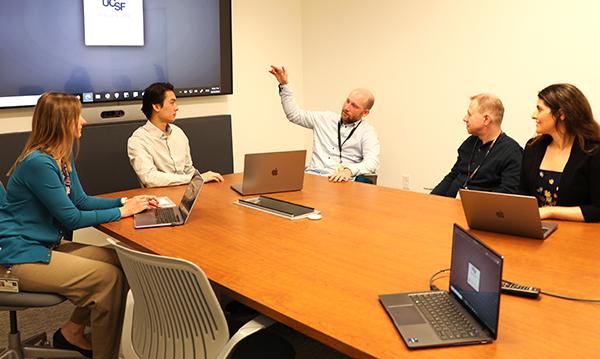Featured Data Science Platform:
Information Commons
Information Commons is a fast and easily searchable and accessible repository of all UCSF clinical data and models, and related basic science & population data, that enables UCSF research and discovery of new health insights underlying precision medicine, to improve patient and health care.
Computing Infrastructure:
Wynton
Wynton is a large, shared storage and computing cluster underlying UCSF's Research Computing Capability. Funded and administered cooperatively by UCSF campus IT, key research groups, and the Bakar Institute, it is available to all UCSF researchers, regardless of their ability to contribute funds to the system.
Partnership Opportunities:
Center for Real World Evidence (CRWE)
Actionable answers from rich clinical data and incisive AI, guided by experts.
Collaboration Opportunities:
Computational Projects
Our goal is to build a bridge between project needs and individuals with the technical know-how to make an impact in the data science and computational field. Individuals interested in taking part in computational health science projects are encouraged to submit their information, and we will contact you if an appropriate project match is identified.
